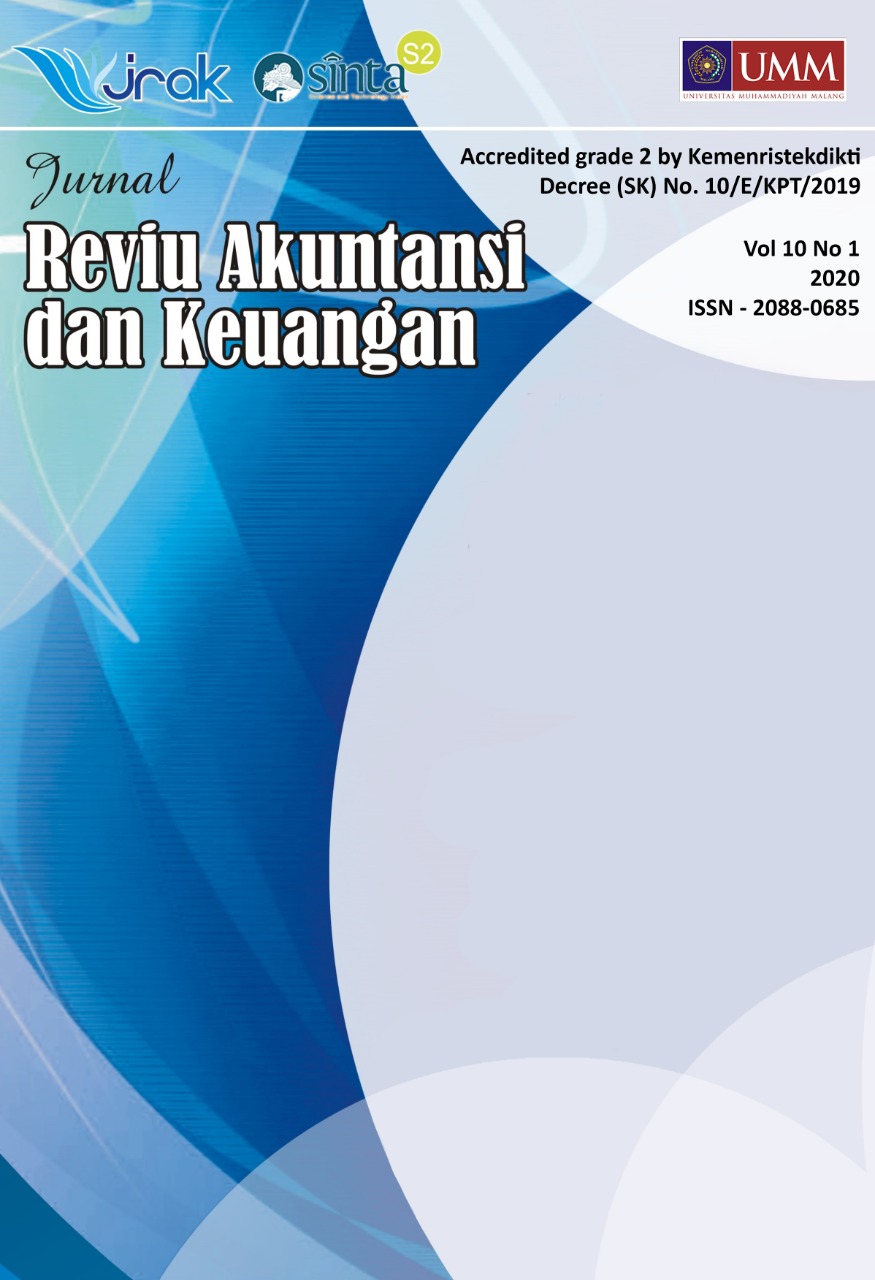ROLE OF LOCUS OF CONTROL AND UNDERSTANDING OF ACCOUNTANT ETHICS ON ACCOUNTANT ETHICAL BEHAVIOR
DOI:
https://doi.org/10.22219/jrak.v10i1.9415Keywords:
Accountant’s Code Of Ethics, Accountant’s Ethical Behavior, Locus Of Control, Moral Reasoning AbilityAbstract
The purpose of this study is to analyze the different level of moral reasoning ability in the accounting profession, measure individual ethical behavior using an experimental approach of hypothetical situations, and empirically test the influence of locus of control, individual demographical characteristics and the accountant’s understanding of the code of ethics into the accountant’s ethical behavior. This study use the basic theoretical framework of Kohlberg’s Moral Development Theory in explaining and predicting the relationship of individual ethical behavior with its demographic characteristics. This study also tries to modified study which analyze the relation of position level at work with individual ethical behavior, and added some variables: locus of control which referred to Rotter’s and the accountant’s understanding of the code of ethics. This study is a quantitative study using a survey method to find the effect of independent variables, partially and simultaneously to ethical behavior. We analyze sample responses of 96 respondents who works as an accountant in financial industries include banks and non-banks. The result shows that locus of control and the accountant’s understanding of the code of ethics relates positively and significantly to accountant’s ethical behavior, while demographic characteristics are not a predictor of ethical behavior among accountant profession
Downloads
Downloads
Published
Issue
Section
License

Jurnal Reviu Akuntansi dan Keuangan is licensed under a Creative Commons Attribution-NonCommercial-ShareAlike 4.0 International License.
Authors who publish with this journal agree to the following terms:
- Authors retain copyright and grant the journal right of first publication with the work simultaneously licensed under a Creative Commons Attribution-NonCommercial-ShareAlike 4.0 International License that allows others to share the work with an acknowledgement of the work's authorship and initial publication in this journal.
- Authors are able to enter into separate, additional contractual arrangements for the non-exclusive distribution of the journal's published version of the work (e.g., post it to an institutional repository or publish it in a book), with an acknowledgement of its initial publication in this journal.
- Authors are permitted and encouraged to post their work online (e.g., in institutional repositories or on their website) prior to and during the submission process, as it can lead to productive exchanges, as well as earlier and greater citation of published work (See The Effect of Open Access).










